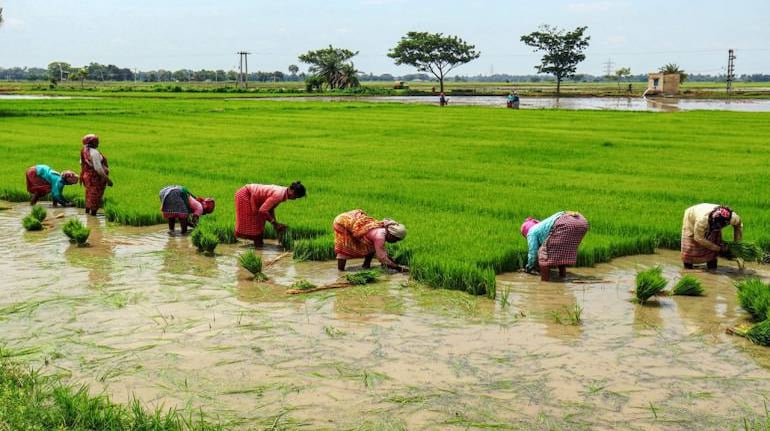
Unseasonal rains along with other adverse weather conditions in February and March, coupled with lack of manpower to harvest crops during the coronavirus lockdown, will hit the output of rabi crops like cereals, pulses and oil seeds, according to a report.
The production of cereals, pulses and oilseeds is estimated to decline by 1.95 percent, 2.22 percent and 13.48 percent, respectively, in 2019-20 compared to last year, according to the report by the National Bulk Handling Corporation (NBHC).
In India, rabi harvesting starts in March in Gujarat, Madhya Pradesh, Rajasthan and Maharashtra, and in April in Punjab, Haryana and Uttar Pradesh.
The government announcement of the lockdown came right in the middle of this rabi harvesting season, it said adding that even as farm activities were exempt from the lockdown, the shortage of labour and lack of transport facilities are expected to impact the rabi crop adversely.
Wheat production is expected to fall further by 3.12 percent over last estimate as delayed harvesting has led to a fall in yield and further delays in procurement exposes the crop to untimely rains but would be still higher by 5.61 percent over last year mainly because of increased MSP coupled with the surplus monsoon and post-monsoon rains in October boosted soil moisture levels, it said.
However, rice production is expected to increase marginally by 3.17 percent over last estimate amidst reports of higher yield in Telangana but would still be lower by 25.67 percent over last year owing to marginal shift in farmer's focus to pulses and wheat.
Maize is expected to decline further by 2.17 percent over last estimate leading to overall fall in production by 0.99 percent over last year.
Jowar production is expected to improve further by 2.62 percent over last estimate leading to overall increase in production by about 23.57 percent over last year.
Meanwhile, pulses production is projected to drop further by 4.58 percent over last estimate, which is 2.22 percent lower than last year's production mainly due to 10.85 percent drop in the gram production, which constitutes about 70 percent of the total rabi pulses.
Gram production is expected to decline further 4.87 percent over the last estimate mainly due to fall in Madhya Pradesh as a lot of area under gram was diverted for wheat cultivation.
Urad, masoor and field pea are also expected to decline by 2 percent, 2.17 percent and 5 percent, respectively over the last estimate.
Total oilseeds production is estimated to be 9.50 million tonnes, which is about 6.58 percent lower than the last estimate mainly because of fall in mustard or rape seed and groundnut production, leading to overall fall in production by 13.48 percent over last year.
Mustard and groundnut production is expected to decline 7 percent and 5 percent, respectively over last estimate.
Discover the latest business news, Sensex, and Nifty updates. Obtain Personal Finance insights, tax queries, and expert opinions on Moneycontrol or download the Moneycontrol App to stay updated!